What happened in SEO in 2023
2023 has been a whirlwind for most SEO professionals. In a continually evolving industry, 2023 has seen multiple algorithm updates, new technologies, and numerous innovations. In this blog post, we will summarise the most noteworthy changes we’ve seen in the industry and also discuss what tips and SEO strategies you should consider implementing in 2024. Earlier this month, I presented a webinar that dives into the 2023 round-up and SEO tips for 2024, so feel free to watch the video below if you prefer a video format to a blog.
Algorithm Updates Again and Again and Again…
2023 saw the release of 9 ‘official’ algorithm updates (so far!). 4 of these have come since October! Google is slowly combining its various algorithms into its ‘core’ algorithm, so rather than announcing every time it rolls out a certain algorithm update, it will incorporate it into its core algorithm. Google’s ‘reviews’ update is now being rolled into this core algorithm so we won’t hear about further updates to this.
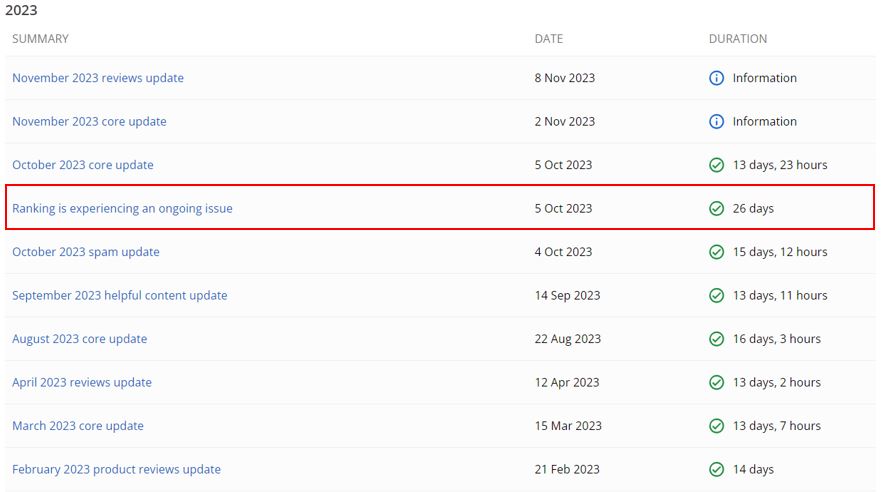
Another thing we saw in October was Google owning up to breaking the search results after rolling out their October core algorithm. Discover results were affected from the 5th of October until the 31st of October. Will we see more of this in future core updates as technology moves at a rapid pace?
Google Continued to test SGE
Google Search Generative Experience (SGE) is the future of Google’s search results pages. It aims to provide users with all the information they need to answer their questions directly in search. This evolution has been a long time in the making, for years in fact. Google has been evolving search from 10 blue links through to featured snippets and knowledge panels. Now, if you search for the weather, it shows right in search, if you search for guides you get a step-by-step guide showing straight up. In 2020 ‘no-click’ searches were already at 65%, showing just how much Google is already working to answer questions for users right in the searches.
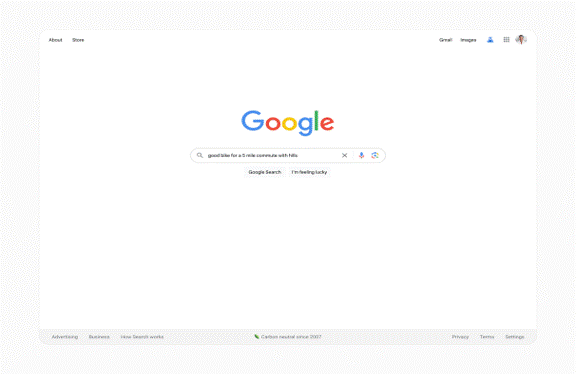
Currently, access to Google’s SGE is limited, but in 2024 it is expected that this will become more readily available and tested even more, giving more people the opportunity to test it out and see for themselves how search results will evolve in the coming years.
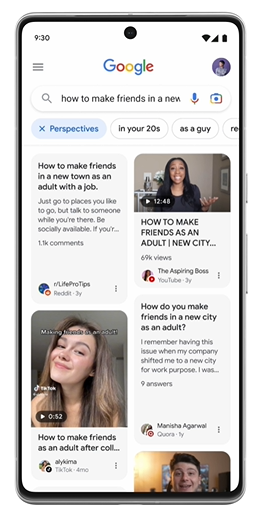
Google is prioritising UGC
User Generated Content (UGC) is becoming a big focus for Google, so much so that in 2023 they announced a new ‘perspectives’ tab in search. This enables users to see search results mainly dominated by video content from the likes of YouTube and TikTok, as well as Reddit and Quora discussions. This is live in the US and is expected to be rolled out to the UK in the future. This does however show how much focus Google is putting on UGC. If you’re searching for certain phrases where Google believes the intent is you looking for advice, you’ll likely see the perspectives tab filled with content created by individuals.
After September’s ‘Helpful Content’ update, both Reddit and Quora saw their organic traffic surge, so marketers now need to start thinking about how they can get seen on those types of platforms. If Google is favouring UGC websites then can you get more exposure by advertising on these platforms as well as ranking their own websites in the search results?
What does this mean for 2024?
So, how do we influence our 2024 SEO strategy to account for these new innovations? Well, first of all, it’s worth noting that the basics still matter. The bare minimum we should be doing is ensuring our on-page SEO and technical SEO are done.
Technical SEO will help ensure that Google can efficiently crawl, index, and rank your website in its results. If your technical SEO isn’t up to scratch then all the other hard work will be for nothing.
When it comes to technical SEO you should ensure you have done the following:
- Minimised 404 errors
- Ensured Google can crawl your pages (check for ‘noindex’ tags)
- Check you’re not blocking anything in your robots.txt file
- Ensure your website is mobile-friendly
- Ensure your website is secure
- Check to see if your website passes the Core Web Vitals
For on-page SEO, there are still critical meta tags to populate and content optimisation techniques to implement on your pages. The basics of on-page SEO will always be important, but it’s also vital that you do not try to shoehorn keyphrases into your content which results in your content looking unnatural.
When it comes to on-page SEO you should ensure you’re using the following guidelines:
- Page Titles – between 45-60 characters, include your main keyphrases
- Page Titles – should be unique on all pages
- Meta Descriptions – between 130-155 characters, include USP’s
- Meta Descriptions – not a ranking signal, but keyphrases included will be bold
- Heading Tags – should match your page title (can be used in SERPs)
- Heading Tags – single H1 tag per page, H2, H3’s used as required
- Body Content – include your target keyphrases throughout
- Body Content – include internal links to other pages on your website
What else to focus on in 2024
Whilst the basics are important, there is much more to focus on if you want your SEO to succeed in 2024. So, lets go over some tactics to really give your organic visibility a boost in 2024.
Focus on E-E-A-T
The first thing we need to do is ensure we’re focusing on E-E-A-T. This is Google’s quality rater guidelines and this is how Google evaluates your website and decides whether it can trust your content enough to rank it well within its search results. E-E-A-T stands for:
Experience
Expertise
Authoritativeness
Trustworthiness
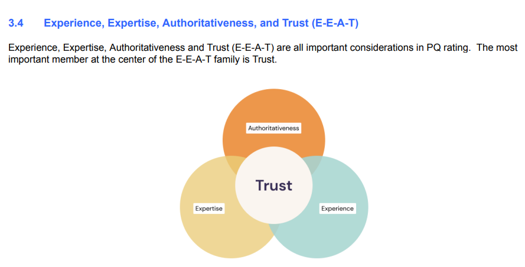
Essentially, Google wants to be sure that your website is reliable and that you have the authority to speak about the topics you talk about. So how do we impact this?
Firstly, we need to ensure our website has an ‘About Us’ page. This will help Google understand who you are and what your business is about. Within this page, you can talk about your company’s history, when you were established, link to any accreditations you might have, and any industry memberships you have.
Next, we need to ensure whenever we’re publishing content, we have author bios attached to them talking about the author and their experience in the industry. As well as this, within our content we need to ensure any time we’re stating facts and figures we’re providing a link to the source to show Google where we got that data from.
We also need to ensure we’re collecting feedback in the form of reviews and testimonials. Now, there are multiple places we can collect reviews, so we’d recommend you gain reviews on your Google Business Profile, your social media profiles, and also through third-party platforms such as Reviews.co.uk. The more places we can get reviews, the easier Google will find it to associate a positive brand affinity with your business.
Focus on UGC
You should also be thinking about how your business can generate more user-generated content. Can you do this by pushing for more video reviews of your business, products or services? You’ll also need to tailor any blog content on your website to start including more first-hand experience, so talking about how products or services have helped you, what experiences you’ve had in certain sectors or what problems you have had and how you’ve overcome them using your own products or services.
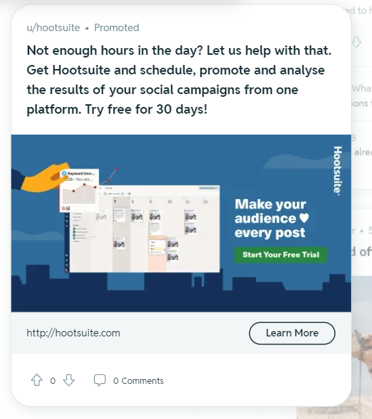
Another thing to think about is whether can you interact with your customers on third-party websites. As I mentioned earlier Google is pushing sites such as Reddit and Quora in front of more people. Can you, as a business get yourself onto these platforms, whether organically or through ads. Can you provide support and advice on certain topics? You should also consider whether you can add features such as forums or Q&A’s to your own website to help generate more user-generated content.
Think about Video SEO
With Google pushing its perspective tab, we’ll also need to consider what impact videos will have in the future. So looking at your Video SEO is also going to be important. If you are currently generating video content on platforms such as YouTube, do you have a strategy in place? If not, then consider these tactics to ensure you’re getting the most benefit from it:
- Create in-depth video descriptions
- Use transcripts where possible
- Populate tags with relevant search terms
- Add timestamps to your videos
- Link to relevant website pages in the description
If you’re generating longer-form content, then you should also consider splitting the content down into short-form videos to use on platforms such as Instagram and TikTok to further push this content. By splitting the content down it also means you’ll generate multiple posts out of your single video.
Think about User Intent
We also need to think about the type of content we’re creating. Is it the right type of content? Should it be a blog post or a video or a reel? We need to focus on the intent of a user and what Google is looking to show in its SERPs. This means when we’re selecting keyphrases to optimise, we need to search for our desired keyphrases – are product pages, blog posts, or service pages showing? If it’s all product pages then we know we need to optimise a product page.
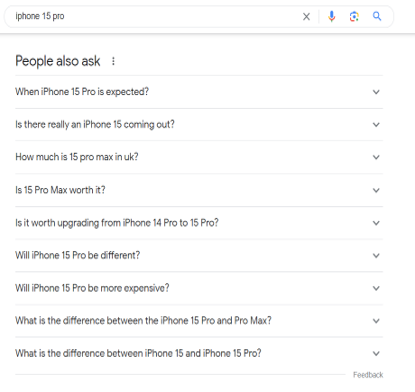
You need to also look at the ‘people also ask’ boxes. What type of questions are showing up when you search for something? This data is Google telling you exactly what questions you should be answering within your content. If you search for ‘iPhone 15 Pro’ then Google is telling you that the people searching for it are also the same people asking ‘When is the iPhone 15 Pro expected?’, ‘Will iPhone 15 Pro be different?’
Think about your product pages and whether you can add Q&A sections that answer these questions. Structure your content in a way to answer this and if needed then create supporting content that answers these questions too.
Integrate your SEO strategy with other channels
Finally, now is the time to start ensuring your marketing channels are working together, not in silos. Your paid strategy should be aligned with your organic strategy, which in turn should also be aligned with your PR and social strategy. Are you running paid ads for the same keyphrases as organic? Are you using the same landing pages? If you’re running paid ads to a different page, as they duplicating each other? Are your PPC landing pages set to ‘noindex’ so Google doesn’t get confused? Are you running ads on third-party sites such as Reddit to maximise your reach?
From a PR and SEO point of view, we need to think about more than just coverage. We should be integrating SEO with a digital PR campaign focused on getting links to help improve the authority of your website. Authoritative links will help boost your credibility as a website and make it easier for Google to rank your website. Again, referring back to user-generated content, does this mean that we should consider influencer marketing again as this is the type of content Google could show in the results and in particular, the perspectives tab?
Conclusion
In summary, SEO is changing. It isn’t just SEO anymore, it’s not just about writing some titles and putting keyphrases on a page. Search Engine Optimisation is becoming more like User Experience Optimisation. Marketers need to think about how can your page answer every possible question a user might need to answer before they convert.
Marketing strategies need to be integrated more than ever. With so many touch points in a user buying cycle, your PPC strategy should be aligned with your SEO strategy, which should also be aligned with your social and PR strategy. All platforms will begin to have a part to play in getting your website found in Google – teams need to be talking to each other!
Lastly, think outside the box! What can you do as a business to interact better with your customers? Consider first-hand product/service reviews on your blog, and try to collate more video reviews and testimonials that can be posted on your website and social channels. Do you need to step away from what you’ve been doing over previous years and begin to be a bit more experimental?
If you need help with your SEO in 2024, then why not get in touch with the team at Anicca and see how our integrated strategies can elevate your business over the next 12 months.

